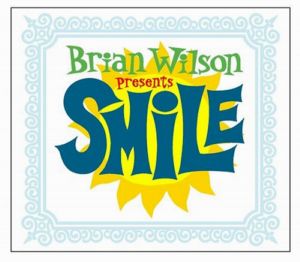
- Format: MP3

The white whale of '60s record-making, the Beach Boys' aborted Smile album gradually gained a legend that not only inflated its importance and its complexity, but gave credence to an odd notion — that completing it, then or ever, was impossible. In truth, Smile should have been released and forgotten, reissued and reappraised, and finally remastered for the digital era and ushered into the rock canon ever since Brian Wilson halted work on it in May 1967 (after an exhausting 85 recording sessions). Instead, it languished in the vaults and remained the perfect record — perfect, of course, because it had never been finished. Reports that the recording of "Mrs. O'Leary's Cow" had caused a nearby building to burn down and whispers of "inappropriate music" gave it the character of a monster, one that cursed all those who approached it and claimed the heart and mind of its closest participant. Wilson's love of "feels" — short passages of cyclical music that could be overdubbed and rearranged countless times — had made 1966's "Good Vibrations" the ultimate pocket symphony, but had also quickly spiralled into the instability that consumed him during its follow-up, "Heroes and Villains," projected to be the centerpiece of Smile.
Happily, a new recording of Smile by Brian Wilson reveals the record as nothing more or less than a jaunty epic of psychedelic Americana, a rambling and discursive, playful and affectionate series of song cycles. Infectious and hummable, to be sure, and a remarkably unified, irresistible piece of pop music, but no musical watershed on par with Sgt. Pepper's Lonely Hearts Club Band or Wilson's masterpiece, Pet Sounds. For the first time ever, the program for Smile was compiled, after Brian Wilson listened to the original recordings with his musical midwife, Darian Sahanaja of the Wondermints (which has long functioned as Wilson's live backing band), and worked them into a live show, then an album recording. The work that evolved divides into three sections: Smile begins with Americana, which takes the dream of continental expansion from the old Spanish town saga of "Heroes and Villains" to the landing at Plymouth Rock and the end of the frontier at Hawaii; it continues with a Cycle of Life that progresses from the virginal grace of "Wonderful" to the simultaneous peak and decline of the creative life on "Surf's Up"; and ends with an environmental cycle called The Elements, which includes "Vega-Tables," (Earth), "Wind Chimes" (Air), "Mrs. O'Leary's Cow" (Fire), and "In Blue Hawaii" (Water).
Since Wilson himself was previously the most opposed to Smile appearing in any form, it's a considerable shock that this new recording justifies even half of the promise that fans had attached to it. Everything that Wilson and his band could control sounds nearly perfect. Every instrument, every note, and every intonation is nearly identical to the late-'60s tapes; one has to wonder whether vintage hand tools weren't acquired for "Workshop" and Paul McCartney wasn't flown in to add chewing noises to "Vega-Tables." (The players did, however, book time at one of Brian's old haunts, Sunset Sound, and utilized a '60s tube console to record their vocals.) No, the harmonies here aren't the Beach Boys' harmonies, and Brian's vocals aren't the vocals he was capable of 37 years ago, but they're excellent and (best of all) never distracting. Aside from the technical acumen on display, Wilson has also, amazingly, found a home — the proper home — for all of the brilliant instrumental snippets that lent the greatest part of the mystery to the unreleased Smile. Van Dyke Parks' new (or newly heard) lyrics fit into these compositions, and the work as a whole, like hand in glove. (The former instrumentals include "Barnyard"; "Holiday," which is here called "On a Holiday"; "Look," which is now "Song for Children"; and "I Love to Say Da-Da," which is now part of "In Blue Hawaii.") Most surprisingly, nearly all of this thematic unity was accomplished by merely reworking the original material already on tape, which proves that Wilson was never very far from finishing Smile in 1967. (It's very likely that the gulf was psychological; Smile had few supporters among Brian's closest friends and family.) Hopefully, Capitol is readying a Smile Sessions box set to release all of the vintage material, but it's clear that nothing they dig up from the vaults will be able to match the unity displayed by this attractive new recording of Smile. It's up to the standards of anyone who's ever scoured the bootlegs to create a Smile tape, and it beats them all, which is the highest compliment. So, if you've never been burdened with a friend's Smile tape before, count yourself lucky that Brian Wilson's is the first you'll hear. And if you have heard a few, prepare to listen to them much less religiously.